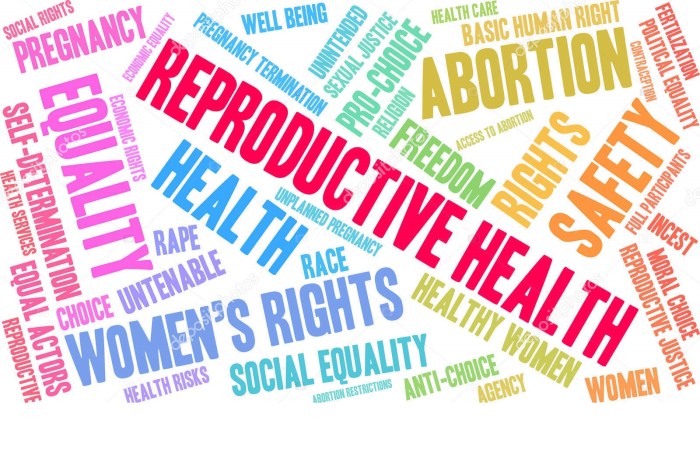
Step right up, folks! Today, we’re delving into the intriguing world of Nosophobia and its treatment. Brace yourselves for an enlightening journey filled with insights and practical tips to conquer this fear of illness.
Nosophobia, a lesser-known phobia, grips individuals with an intense fear of contracting a specific disease, leading to debilitating anxiety. Let’s unravel the mysteries surrounding this condition and explore effective ways to combat it.
What is Nosophobia?
Nosophobia is a specific phobia characterized by an intense fear of developing a specific disease or medical condition. Individuals with nosophobia often fixate on the possibility of having a serious illness, despite reassurances from medical professionals. This fear can lead to extreme anxiety and avoidance behaviors related to health concerns.
Differences from General Health Anxiety
Nosophobia differs from general health anxiety in that it is centered around a specific disease or condition rather than a broad range of health worries. While individuals with general health anxiety may have concerns about various illnesses, those with nosophobia typically focus on one particular disease that they fear developing. This specific focus can consume their thoughts and significantly impact their daily lives.
Psychological Impact
- Nosophobia can lead to constant worry and anxiety, affecting the individual’s quality of life.
- It may result in hypervigilance towards bodily sensations, leading to frequent doctor visits and medical tests.
- The fear of the specific disease can cause significant distress and impairment in social and occupational functioning.
Common Triggers
- A history of a family member or friend suffering from the specific disease can trigger nosophobia.
- Media coverage or personal experience of a severe case of the disease can exacerbate the fear.
- Experiencing symptoms that the individual associates with the feared disease can intensify their anxiety.
Treatment for Nosophobia

Nosophobia, like any other phobia, can be effectively treated with various techniques, including cognitive-behavioral therapy, exposure therapy, medication, and self-help strategies.
Cognitive-Behavioral Therapy Techniques
Cognitive-behavioral therapy (CBT) is a common treatment approach for nosophobia. It focuses on identifying and changing negative thought patterns and behaviors related to illness anxiety. By working with a therapist, individuals can learn to challenge irrational beliefs and develop healthier coping mechanisms.
Exposure Therapy
Exposure therapy is another effective method for treating nosophobia. This involves gradually exposing the individual to their feared situations or objects related to illness, helping them confront and overcome their fears. Through repeated exposure, the individual can learn to manage their anxiety and reduce the intensity of their phobic reactions.
Medication for Managing Symptoms
In some cases, healthcare providers may prescribe medications such as antidepressants or anti-anxiety drugs to help manage the symptoms of nosophobia. These medications can help reduce anxiety levels and alleviate some of the distress associated with the phobia. However, medication is usually used in conjunction with therapy for optimal results.
Self-Help Strategies
There are several self-help strategies that individuals can use to cope with nosophobia on their own. These include practicing relaxation techniques, such as deep breathing or mindfulness, engaging in regular physical exercise, maintaining a healthy lifestyle, and seeking support from friends, family, or support groups. Self-help books and online resources can also provide valuable information and guidance for managing nosophobia outside of therapy sessions.
SPA AND WELLNESS

Spa and wellness are essential components of self-care that focus on promoting relaxation, rejuvenation, and overall well-being. These practices not only help in physical health but also play a significant role in improving mental health.
Benefits of Spa Treatments for Mental Health
- Reduce stress and anxiety levels: Spa treatments like massages and aromatherapy can help in reducing stress and anxiety, promoting relaxation and calmness.
- Enhance mood: The calming ambiance and pampering experiences of spa treatments can elevate mood and improve overall mental well-being.
- Promote better sleep: Relaxing spa treatments can help in improving sleep quality, leading to better mental clarity and focus.
- Boost self-esteem: Taking time for self-care through spa treatments can boost self-esteem and confidence, contributing to a positive mindset.
Popular Wellness Practices
- Meditation: Meditation involves focusing the mind and eliminating distractions to achieve a state of mental clarity and inner peace.
- Yoga: Yoga combines physical postures, breathing exercises, and meditation to improve flexibility, strength, and mental well-being.
- Aromatherapy: Aromatherapy uses essential oils to promote relaxation, reduce stress, and enhance mood through the sense of smell.
- Healthy Eating: Eating a balanced diet rich in nutrients can support overall well-being and mental health.
Tips for Incorporating Spa and Wellness Activities into Daily Routines
- Schedule regular self-care time: Allocate specific time in your daily routine for spa and wellness activities to prioritize your mental health.
- Practice mindfulness: Stay present in the moment and engage fully in spa treatments or wellness practices to maximize their benefits.
- Create a calming environment: Set up a peaceful space at home for meditation or relaxation to enhance the effectiveness of your wellness routine.
- Stay hydrated: Drink plenty of water throughout the day to support your body’s natural detoxification processes and overall well-being.
REPRODUCTIVE HEALTH
Reproductive health is a crucial aspect of overall well-being, encompassing physical, emotional, and social well-being related to the reproductive system. It is essential for individuals to prioritize their reproductive health to lead a healthy and fulfilling life.
Common Reproductive Health Issues
- Sexually Transmitted Infections (STIs): STIs can lead to various complications if left untreated, affecting both physical and emotional health. Practicing safe sex and getting regular screenings can help prevent STIs.
- Infertility: Infertility can be a challenging issue faced by individuals trying to conceive. Seeking medical advice and exploring treatment options can help address infertility issues.
- Menstrual Disorders: Conditions like irregular periods, heavy bleeding, or painful periods can impact a person’s quality of life. Consulting a healthcare provider for proper diagnosis and management is crucial.
- Reproductive Cancers: Cancers affecting the reproductive organs, such as ovarian, cervical, or testicular cancer, require early detection and treatment for better outcomes. Regular screenings are vital for early detection.
Preventive Measures for Good Reproductive Health
- Practice Safe Sex: Using condoms and being in a mutually monogamous relationship can help prevent STIs.
- Regular Check-ups: Routine visits to a healthcare provider for screenings and exams can help detect any reproductive health issues early on.
- Healthy Lifestyle: Maintaining a balanced diet, exercising regularly, managing stress, and avoiding harmful habits like smoking and excessive alcohol consumption can promote good reproductive health.
- Educational Resources: Stay informed about reproductive health through reliable sources such as healthcare providers, reputable websites, and educational materials.
Resources for Reproductive Health Information and Support
1. Planned Parenthood
Offers a wide range of reproductive health services and information.
2. Centers for Disease Control and Prevention (CDC)
Provides valuable resources on sexual health and reproductive issues.
3. American Sexual Health Association
Offers educational resources and support for sexual health concerns.
4. Local Health Clinics
Visit your nearest health clinic for confidential reproductive health services and guidance.
HEALTH PHOBIAS
Health phobias are characterized by an excessive and irrational fear of developing a serious illness or medical condition. These phobias can have a significant impact on an individual’s mental health, leading to persistent anxiety, avoidance behaviors, and impaired quality of life.Common types of health phobias include hypochondria, also known as illness anxiety disorder. Individuals with hypochondria often experience intense worry and fear about having a serious medical condition, despite reassurance from medical professionals that they are healthy.
This can lead to frequent doctor visits, excessive health-related research, and preoccupation with bodily sensations.Treatment options for managing health phobias typically involve a combination of therapy, medication, and lifestyle changes. Cognitive-behavioral therapy (CBT) is often used to help individuals challenge and change their negative thought patterns and behaviors related to health anxiety. Medications such as antidepressants or anti-anxiety drugs may also be prescribed to alleviate symptoms.Tips for overcoming health phobias and seeking professional help include:
- Educate yourself about the nature of health anxiety and how it manifests in your life.
- Practice relaxation techniques such as deep breathing, meditation, or yoga to reduce anxiety symptoms.
- Gradually expose yourself to feared situations or triggers under the guidance of a therapist.
- Maintain a healthy lifestyle with regular exercise, balanced nutrition, and adequate sleep.
- Seek support from friends, family, or support groups to share your experiences and feelings.
Remember that overcoming health phobias is a process that takes time and effort. It is essential to work closely with mental health professionals to develop a personalized treatment plan that addresses your specific needs and challenges.
Ending Remarks
As we wrap up our exploration of Nosophobia and its treatment strategies, remember that knowledge is power when facing fears. By understanding this phobia and implementing the discussed techniques, individuals can take control of their health anxieties and lead fulfilling lives free from the shackles of fear.
FAQ Overview
What are the common triggers for Nosophobia?
Common triggers include hearing about serious illnesses, experiencing symptoms similar to those of a specific disease, or encountering medical settings.
How effective is cognitive-behavioral therapy in treating Nosophobia?
Cognitive-behavioral therapy has shown significant effectiveness in helping individuals identify and challenge their irrational beliefs about illness, leading to reduced anxiety levels.
Are self-help strategies useful for coping with Nosophobia?
Yes, self-help strategies like relaxation techniques, mindfulness practices, and gradual exposure to feared situations can be beneficial in managing Nosophobia.







